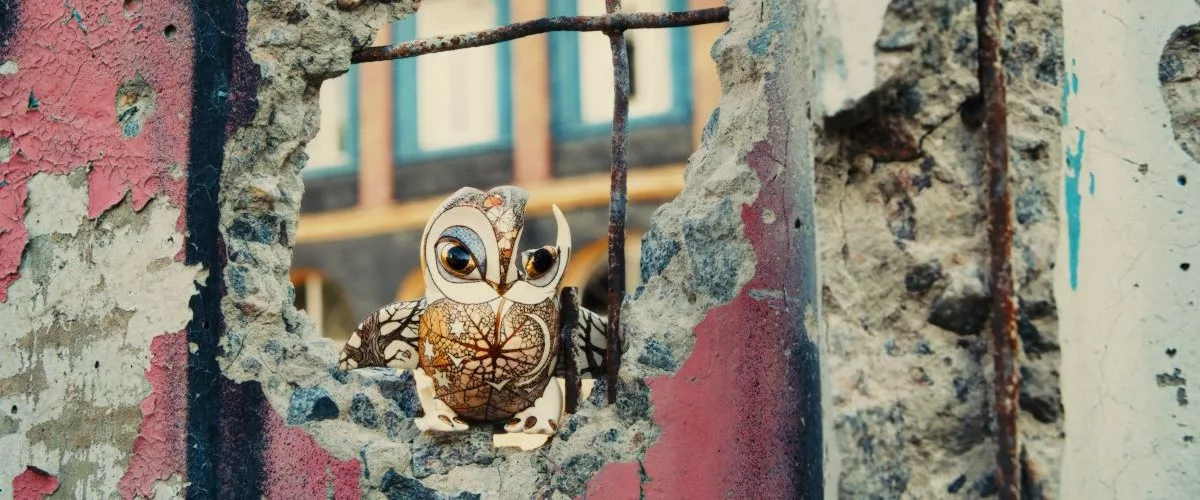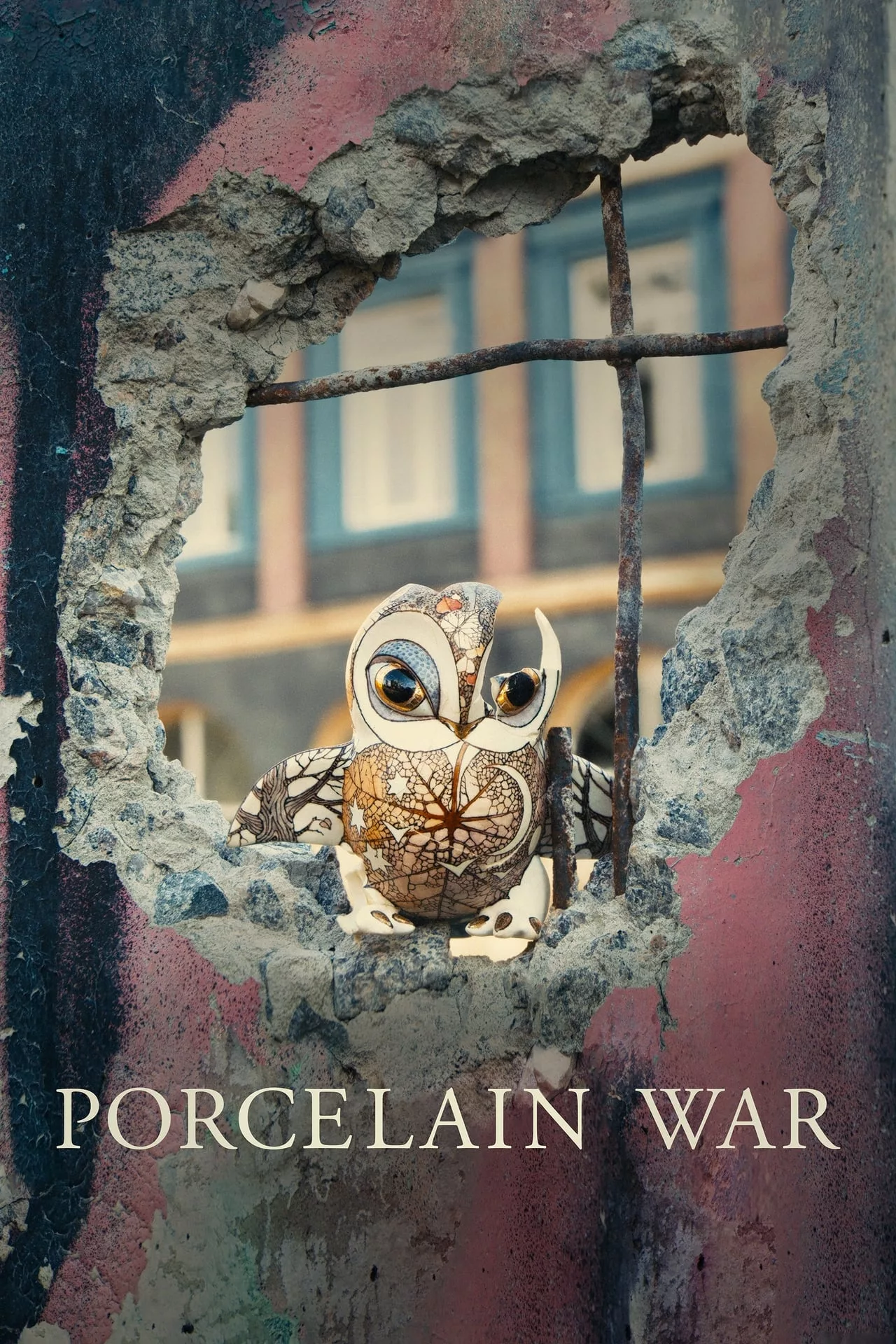When a country is invaded by an outside aggressor intent on complete destruction, one of the many things at risk of disappearing forever is their culture—not just the works of art and creativity that made living in those places a unique experience but also those who created them, those who consumed them and those who they might have inspired to go on and create their own works down the line. The documentary “Porcelain War” examines this harsh fact of life by observing a couple of artists in Ukraine who have not only remained in their war-torn country during the onslaught from Russian forces but who are determined to continue practicing their crafts as an act of defiance, even when they find themselves having to go out and defend their land and lives through more conventional means.
The focus is on Slava Leontyev (who also co-directed with Brendan Bellomo) and Anya Stasenko, who have been partners in art and life since childhood. He makes small figurines out of porcelain, and she decorates their surfaces with highly detailed paintings. Although originally based in Crimea with a group of friends and fellow artists, they are forced to flee in the wake of Russia’s annexation in 2022. Instead of fleeing the land entirely, the two relocate to Kharkiv, an area approximately 25 miles from the Russian border, where they are joined by Andrey Stefnov, another artist friend who has shifted from painting to photography and who yearns to be reunited with his wife and two daughters, who escaped to safety in Lithuania, as well as an extraordinarily adorable and constantly bouncing terrier by the name of Frodo.
In their new home, Slava and Anya continue to make their creations, placing them amidst the seemingly endless sea of rubble as a way of signifying that Ukraine’s culture is determined to stand firm in the face of Russian aggression. Of course, wars cannot be fought solely on artistic grounds. They find themselves fighting back on more than just a metaphorical level, with Slava finding himself serving as a weapons instructor for a squad of civilians, Andrey capturing much of the footage that comprises the film, including drone footage of other drones dropping small bombs on the invaders, and Anya decorating the drones before they go out into the field. Frodo, for his part, remains a very good boy throughout.
Although some of the footage seen in “Porcelain War” is grim and hard to watch, the film is ultimately a celebration of the resiliency of the artistic spirit, even in the most horrifying of circumstances. On that level, it sort of succeeds—Slava and Anya make for an engaging and interesting pair, and Frodo, as I have previously suggested, is as adorable as can be. And yet, while fully sympathizing with its subjects and ultimate message, I often found myself oddly disengaged from it. It hints at more complex and nuanced ideas that it never quite gets around to exploring, preferring a more simplistic presentation that doesn’t quite cross the line into actual propaganda but comes pretty close, nevertheless.
As the film reminds us, the act of creating art is often a form of rebellion. But what happens when things shift and those very same creators are put into the position of becoming destroyers, even when those actions are, as in this case, completely justified? How does that shift change both the artist and their art? Can the very act of war itself be seen as a sort of creative process? These are intriguing points and there are moments here and there when the film seems to at least quietly acknowledge them, most overtly in our views of the drones adorned with Anya’s illustrations as they go about their deadly business. For the most part, however, the film avoids these potentially dicey and provocative notions for elements that will presumably be far more palatable to viewers, ranging from moments of Malickian visual poetry to scenes in which Andrey can contact his much-missed loved ones to explanations that porcelain is a material that is ostensibly fragile but ultimately resilient. Spoiler Alert—it turns out that this can also serve as a description of Ukraine.
“Porcelain War” won the Grand Jury Prize for documentaries at last year’s Sundance Film Festival and has made the Best Documentary Feature shortlist for this year’s Oscar race. This isn’t too much of a shock because the film as a whole is well-made, reasonably compelling, and conveys a message about the power of art that no one would ever want to be seen coming out against. That will be enough for many viewers, I suppose, but by sticking to the more feel-good aspects—as feel-good as one can get, given the subject—and refusing to truly grapple with some of the more complex and troubling issues it hints at, it misses the chance to transform into something far more meaningful.




















